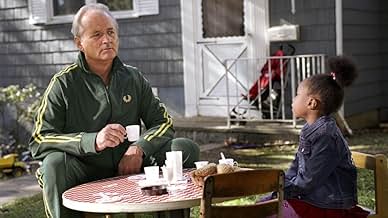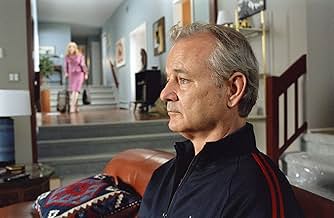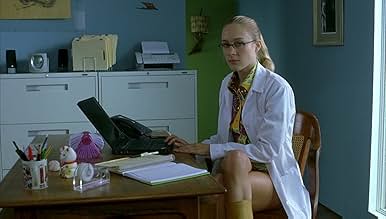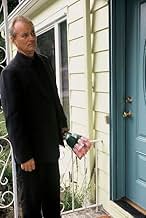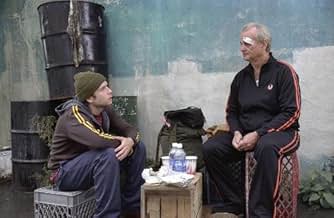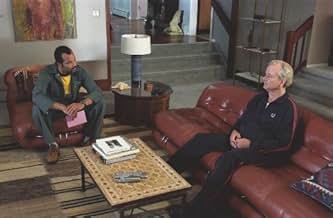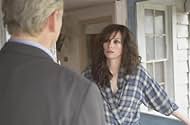There has been a lot of talk that "Broken Flowers" is Jim Jarmusch's most commercially accessible film to date. One can almost hear Jarmusch muttering something reactionary like "commercial? That's just a label." It's a label that some Jarmusch fans might associate with "selling out". But selling out does not apply to Jim Jarmusch. He still has complete control of his work and is still the only American filmmaker who owns his own negatives. If "Broken Flowers" does break into the mainstream, it is nothing overly deliberate. Jarmusch makes familiar films that seem intimate in their tone. He toys with old themes while still leaving his films open to interpretation.
"Broken Flowers" is a travelogue and like most Jarmusch films, the story is more concerned with the journey but not so much about the destination. Bill Murray plays Don Johnston, a man who we know little about. We know he's single and we know he's had some flame's in the past. The last one just walked out on him. When Don receives an anonymous letter from one of these old flames, he learns that he has a twenty year old son who might be looking for him." Don thinks this is a joke but takes the advice from a friend to unfold the mystery by tracking down his past flings. He flies somewhere to a generic American place, rents a car and begins his investigation. Each ex has an individual personality but most of them share something similar. They are content and have moved on from the past. One of the ex's we meet works in real estate and decides it would be a good idea for her to get into the water business because "one day in the near future it will be more valuable then oil." The atmosphere is awkward and rather then care whether this woman is responsible for the anonymous letter, we just feel like getting out of there. The film's journey is absurd in many ways because we are never sure what the real point is. What is Don going to do if he does find his son? This where Bill Murray's credit as an actor shines through. We see from his small facial gestures that he is empty, and sad. There is a sense of longing as if life took a wrong turn somewhere and it is only now that he is realizing it. The ending of "Broken Flowers" is what really makes the film special. Don't expect too much or too little. Just see it. Its inspiring, hopeful and better then any other movie this year. The film also has a great soundtrack by Ethiopian musician, Mulatu Astatke. And we see in the credits that Jarmusch dedicated the film to French filmmaker Jean Eustache. Jean Eustache made a phenomenal film in the 1960's titled, "The Mother and The Whore". He had an influence on John Cassavetes and likewise both had an influence on Jim Jarmusch.




